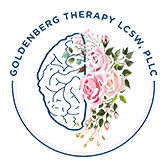Where is your office located?
520 Franklin Avenue L21-A Garden City, NY 11530
A convenient 10-minute walk from the Garden City Long Island Railroad stop and a 5-minute drive from Adelphi University.
How long are sessions?
Sessions last approximately 45 minutes.
We start planning for the next session at the 40-minute mark. Please help me stay on schedule by ending appointments at 45 minutes past the hour.
The time between appointments is necessary for making notes, checking messages, and allowing for one client to leave before the next arrives.
Do you take insurance?
I do not take insurance. I find that working with insurance companies can interfere with the quantity and quality of services for my clients.
Insurance companies can refuse to cover for necessary diagnoses and associated treatments as well as limit the amount of sessions you can have. Additionally, insurance companies often require certain private information that necessitates ongoing updates and authorizations.
Through self-pay, clients avoid having a third-party payer access their mental health records. I find that clients prefer the anonymity and consistent quality care that comes with self-pay therapy
We do not bill insurance companies but, upon request, will provide a statement for you to submit for possible reimbursement.
How do I set up an initial appointment?
Give me a call (347) 927-9442, or send me an e-mail (victoria@goldenbergtherapy.com), or reach out on this website.
What is your cancellation policy?
Sometimes unexpected things come up, and we need to cancel the appointment.
Just let me know more than 24 hours ahead of time if you need to reschedule or cancel our appointment.
If you cancel within the 24-hour window, I charge the regular fee for the session, because I’ve committed that time specifically for you and scheduled others around it.
If you have an illness or emergency, I am happy to discuss with you whether it’s suitable to charge or not.
Who do you work with?
Do your clients receive assignments to work on between sessions?
What modalities do you use in your client work?
What is psychotherapy?
Psychotherapy can help eliminate or control troubling symptoms, so a person can function better and can increase well-being and healing. Psychotherapists are highly trained with a wide variety of tools to help clients address their needs.
What can therapy do for me?
“You might be thinking, if it’s just talking, why do I need this?” Therapists and counselors are trained to address and pinpoint issues in a constructive, and a productive way that your closest confidante may not be able to do.
It can be really helpful to get insight from someone who is unbiased and not connected with the diverse individuals and situations in your life.
What if I'm nervous about opening up to a stranger?
This is very common and understandable. Therapy is highly confidential; I will never reveal what happens in a session unless you reveal to me that you’re at risk for harming yourself or someone else.
This would be considered an emergency. The things you share stay exclusively between us.
Isn't your job just to agree with everything I say?
What can I expect when I come to therapy?
The first session will be an intake. I will gather some information about your history, your symptoms, the reason you decided to come to therapy, and your goals.
We will discuss what your needs are and how I can help with that. The first session is an opportunity to see if we’re a good therapeutic match.
What if I have an emergency and I need help right now?
I do not have 24-hour emergency or “on call” coverage; and I’m not an emergency contact. If you believe you need such coverage, I will be happy to make a referral.
If you experience a psychiatric emergency, you should call 911 or go to the nearest hospital emergency room. You can also call the National Suicide Prevention Lifeline at 1-800-273-8255 (TTY: 1-800-799-4TTY).
If you need to contact me between sessions, please leave a message on my voice mail. I am often not immediately available; however, I will attempt to return your call within 24 hours.
Please note that face-to-face sessions are highly preferable to phone sessions. However, in the event that you are out of town, sick, or need additional support, telehealth sessions are available.
If a true emergency situation arises, please call 911 or any local emergency room.
What is EMDR?
EMDR, or Eye Movement Desensitization and Reprocessing, is a psychotherapy treatment that helps people to heal from the symptoms and emotional distress that are the result of disturbing life experiences.
Studies show that through EMDR therapy, people can experience benefits quicker than through psychotherapy, which can take years to make a difference. As an example, if a foreign object or repeated injury irritates a cut, it festers and causes pain. Your body works the same way to protect you from any ’emotional wounds.’
Once the block is removed, healing resumes. EMDR therapy is one method to help remove the mental block so that healing can occur.
What is telemental health/online therapy?
Telemental health may be useful to individuals who cannot leave their home, who work unconventional hours, as well as live in remote areas.
In this practice we utilize video conferencing through a HIPAA Compliant platform (HIPAA refers to confidentiality).

